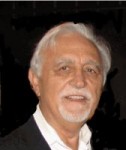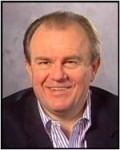Being an effective leader is one of the most important aspects of running a successful business or organization. And since leadership can be a real challenge for most of us, I’ve asked the knowledgeable CarolRoth.com contributor network of experts, advisors and entrepreneurs to provide their best tips for effective leadership. Their answers are presented below in no particular order.
You may notice some similar ideas listed, but I kept them separate, as something in the way one is framed may resonate differently with you.

1. The Secret to Leadership is...
A gentle pressure applied relentlessly. Leaders must move their people in a direction constantly, without wild emotional swings- they must do so in a consistent, relentless fashion.

2. Listen
To be an effective leader, one must LISTEN to what those around you are saying, and then make a decision on what you have heard. To LISTEN is very difficult, but one must, because the lowest of the low person in your business may say something that is effective and very important, something that you would never have thought of. So... learn to LISTEN carefully, and when everyone has had their say, only then make a decision.

3. Shift Happens!
The best leaders understand that Shift Happens! Be willing to coach your team/employees to the expectations you've set for them and when results are less than expected, have a conversation to understand what and why they happened. As time goes on, there's 'shift' in every organization - recognize it, speak to it, and look at the beliefs held by the team that will pull the results to new desired outcomes. Beliefs drive results. Manage the shift by understanding it! People want understanding.

4. Give Back to the Community
An effective leader is someone who is willing to step up to the plate and give back to the community. They go the extra mile and ask "how can I help and where can I pitch in to make a difference?" on a more local (or even global) level. They don't stand back and let others do the work for them. They are the first people to volunteer and help. A genuine, authentic leader leaves his/her ego out of the equation and truly wants to make a positive, supportive impact on our world.

5. "Lead" Less
The more authority you can push down to the level of the team, the more they buy in and act like owners. This is often harder than it sounds, because they will not always make the same decisions you would, and too much veto power kills the experiment. The bedrock of my own track record of "turning around" customer contact operations was letting peers coach employees, make hiring decisions, and manage their team's workflow.

6. Empower Excellence
Look around you sometime with this in mind - people are trying their best to do an excellent job at something. That something may or may not be what you "grade performance" on, but nevertheless, people feel better and accomplish more when their leaders take the time to not only notice, but encourage and empower them to be excellent in what they strive toward. Empowering excellence is different than expecting or demanding it because it starts with the ambitions of the led, rather than the leader.

7. Lead Yourself First
A manager oversees tasks, whereas a leader inspires people. The effective leader is the individual who has mastered themselves.
What is leadership? You must first look in the mirror and ask yourself: what inspires me? Armed with answer in hand, it becomes your responsibility to share that inspiration with your team.
Create a hero in your workplace, at home, or in the community. Your legacy will not come from the number of followers you create, but rather, the number of leaders you mold!

8. The Incredible Decider
To be effective as a leader, put on your superhero personality as The Incredible Decider! Leadership involves risk. If you are someone who can make decisions quickly using the information at hand, your own vision and your intuition, then you will be the leader people clamor to follow. Effective leaders don't second-guess themselves. Instead, they know that not all decisions will work out and they learn from those experiences. Get that cape on! There are decisions waiting to be made.

9. Hire Slow Fire Fast!
Starting at the beginning, take your time to hire the right people for the right job. Everyone must be excited about your vision. Use personality testing to verify strengths and weaknesses. Real leaders are looking for other leaders to help move the vision forward. If you have doubts about a person, remove them quickly. So, Hire Slow but Fire Fast!

10. Real or Fake?
Be genuine! If you fake your interest in the goal, your concern for the people involved, your dedication to a project or anything else, your effectiveness as a leader will be diluted. Being genuine and sincere also makes leading easier, because it will come more naturally.

11. Know People & Personalities
An effective leader is one that knows their people inside and out- and personality is a critical part of 'knowing'. When you know the personality types and traits of your staff and direct reports, you can more effectively communicate with and motivate them. You'll know how to bring out their best and how to encourage them to overcome their challenges. You'll also be able to compose better-functioning teams, because you'll have the correct balance of skills and personalities to ensure success.

12. Shut Up and Listen
I believe that the best leaders know when to stop talking and to listen. It's not always easy to listen to feedback, namely when it's negative. However, feedback can help us grow and mature, and we need to be open to negative feedback as well. It's extremely annoying to watch leaders who want only to hear their own voices and to see their own faces, etc. By sharing the spotlight and knowing when to step back and BE LED, more effective leaders are shaped. Such people are more "follow worthy."

13. Lead
If you want to be a leader, then lead and show the way, both in words and actions. The great leaders are out in front. Your company will only succeed to the level you set the bar to. Setting the pace and setting the examples for everyone to see lets them know what to expect. You have to start by doing the things you want your people to do. Your actions speak louder than words.

14. Put Objectives in Print!
From years of chairing committees and being given assignments, I have seen the effectiveness of putting ALL assignment results in PRINT! Base the report on covering Who, What, Where, When, and Why factors. Keep a copy of the report or email sent for reference. Above all, maintain CLARITY in how you send info. That way, you avoid issues of being confronted on not coming through with your responsibilities.

15. Be What You Want to Get Back
One of the best tips I know for leaders is to be and give what it is you wish to get back in return. For example, as a leader, if you wish to be respected and trusted...give and be respect and trust. If you wish to have a strong and collaborative team, be collaborative. This not only demonstrates integrity, but it models what the leader hopes to have and create in their team.

16. A Matter of R-E-S-P-E-C-T
Ask any great leader their preference when it comes to being “liked” or being “respected” and 9 times out of 10, they’ll say respected. As a leader, you should strive to be respected by those who look up to you. If you are an exceptionally gifted professional, you will garner not only the respect of your subordinates and peers, but also their esteem and admiration.

17. Let Your Team Have the Credit
It's rarely about YOU - you've got a team of people who are responsible for your success. Make sure the powers that be know your team members by name and never pass up an opportunity to sing their praises. When your team knows that you're looking out for THEM, then they'll move heaven and earth to make you successful. Everyone wins!

18. Are You Feeling Comfortable?
Effective leaders play a bigger game by pushing their comfort zones. This stressful cycle involves facing a zone of uncertainty, which once mastered, becomes comfortable. For each change, set three targets with the SAS acronym: a survival goal, an acceptable one and a superb target. A single target risks you feeling like a failure if it's missed. But in reality, by working towards a target, you expand your comfort zone. Remember, if you never fail, you're not pushing your comfort zone enough.

19. Know, Go and Show the Way
Leaders know the way, go the way and show the way.
First, develop a compelling vision of the future that you are creating. I don't care if you're leading a Fortune 500 company or a tiny non-profit. You have to show people where you're going and invite them along for the ride.
Second, consistently and constantly do things that move your organization in the direction of your vision.
Finally, teach the people you lead what they need to know to help you create your vision of the future.

20. Feelings Before Facts
Communicating information is about facts and logic. How we communicate affects the feelings of our staff. Ensure that you are first aware of the impact on the self-esteem and feelings of your employees before you actually provide detailed information. Everyone communicates differently, so the more you know about people, the better leader you will be. It is quite easy to correct mistakes on facts and figures; it is not so easy to backtrack when you have insulted someone.

21. Shut Up and Listen!
A vital core competency that all effective leaders must have seems simple: "Listening."
In actualization, however, depending on habits we all pick up early in life to effectively "listen" may require retraining yourself.
Many people want to appear "quick and ready" to dialogue as a self-image issue to seem "bright and alert." This tendency can get in the way of "listening" because one's self-imposed mind-noise can over-ride what is needed to be heard. Alow pauses - shut up the mind and listen!

22. Leaders Effect Change
Leaders understand the full meaning of "effect" as a verb. They put into place something that did not exist before--a new policy, procedure or mindset, a new organization, team or idea, a change of some sort that ameliorates the existing situation. Following Kurt Lewin's lead, they move others from the current state of affairs toward the ideal.

23. Always Put Consumer First
As a P&G alumni, I saw first-hand the amazing things that happened when Senior level leadership exhibited strong values in putting the consumer first and the shareholder second. Doing the right thing for the consumer keeps your moral compass in the right position and strengthens the rest of the organization. By openly exhibiting their character during critical meetings, senior management gave others in the company the courage and permission to make the tough decisions, while earning great respect.

24. How to Unlock Your Creativity
Be open to outcome- not attached to it.
As a leader, each us of needs to set aside our mental models (our accumulated assumptions about the world around us) when we face new challenges or different points of view from our co-workers and followers. Being attached to an outcome limits our adaptability in an ever-changing world. Open your mind and invite in the possibilities.

25. Revolution in Your Mind
Here's the key to effective leadership: Listen to what others are saying from their point of view- not for whether you agree, not for who is right, not for what you are saying next, not analyzing their words for how they can benefit you. True listening is revolutionary. When you listen like this, other people become more cogent and secure. This is the sweetest wisdom I have heard so far.

26. Great Leadership
There are so many things that go into great leadership that it's beyond difficult to pick just one. But if I had to, I would say to be in touch- in touch with your customers, your team, the economic arena, your competition, future trends and being resilient to the glitches that are bound to happen. Only when you have everyone and everything on board can you soar.

27. Are You a Fearless Leader?
In one word, "fearless."
When you stop and think about it, that one trait, the ability to get things done that seem impossible, makes us want to follow someone in the first place. Right? Count the times you said something on Twitter or Facebook that brought in the most reaction and I'll bet it was something you said that others were just thinking. Look at the people who "risked it" and came away the winner. Confidence baby. That's a life without fear.
Show your strength to go bold or go home!

28. Who Do You Trust?
Trust is the foundation for effective leadership. Exceptional work requires a degree of creativity. Give them the parameters, but don't micromanage. Trust your team to follow through, be creative and to get the job done. Trust builds loyalty, dedication and brings out the best in people. During the most critical moments, the strength of a trusted team pulls together to get the job done.

29. Be a Leader - not a Boss
The Fundamentals are critical here; know where you're going and develop that vision in others. Mission-mindedness is a trait that gains followers, and the ability to embrace and empower their leadership is the essence of a Movement.
On a personal level, eliminate distractions. Your own integrity must be above question. Support individuals as needed, but don't get drawn into drama. Make tough decisions quickly. If a team member is not producing, address it before it affects the Mission.

30. Everything is Energy
Your thoughts and feelings can and do effect other people. When you choose positive thoughts (that are believable) about other people, the energy of those thoughts allow the other person to elevate their attitude, confidence and performance to higher levels. While it may sound woo woo, science proves it. Your thoughts are things: use them in a productive way to enhance the success of yourself and your team!

31. Good Leaders Produce Leaders!
My ONE best tip for being an effective leader is not only leading by example, but bringing out the best in those around you. This is done by teaching your protégés to discover their own leadership skills and cultivating those unique qualities. An effective leader always nurtures and develops those around into eventually becoming leaders themselves. If a person is brought up under a leadership structure and is not able to lead once they have moved on, effective leadership has not taken place.

32. Watch Me Roar
As a woman in business coaching other women in business, my best piece of advice is to speak up for yourself. If you don't, who will? This is also the most important trait of effective leaders. Leadership is all about taking action and when you speak up often, others know to listen. You can't lead if you don't effectively communicate the plan. We all know who the leaders are -- they are the people giving voice to the problem and communicating a solution.

33. Leaders Listen
Combined with a strong sense of justice, impenetrable integrity, humility, and humor, to be an effective leader, you have to shut your mouth and open your ears. The best leaders are those who do not try to control everything themselves, but try to support and encourage the growth of others by identifying and nurturing the unique talents within each individual.

34. Manage, Don't Parent
Lead by example, be a role model and manage your people, don't parent them. We find more people parent than manage and it doesn't work! Keywords to avoid are "should" or "shouldn't."

35. To Lead is to Serve
The best leaders are servants first. This may sound counter-cultural, but it is an age-old idea. Leaders who simply lead through power and control soon find themselves leading only themselves. But leaders who serve those that they lead are sure to make not only their employees happy, but their business will also profit by it. To serve, simply fill the needs of those you serve- not the wants, but the needs, and the day to day running of the business will go incredibly smooth.

36. President
Decide early on what you do well and what you need help with from others. No one is good at everything. An entrepreneur must be resourceful and confident, but humble enough to know when to seek help.

37. Express Your Gratitude
Thank your employees often and wholeheartedly. After you hire the best people, you want to keep them happy and healthy. A special note, a few kind words, or a pair of movie tickets are sweet ways to say you have noticed strong work.

38. All You Need is L.O.V.E.
Love is the great multiplier of anything. Love in leadership may seem contrary to popular business belief and over my 25 years of corporate experience with people leadership, I learned that it is NOT! When you Listen to others, are Open to their ideas, create Visions that inspire and Energize people to action, you lead them with L.O.V.E. Leadership is simple and powerful when you lead with L.O.V.E.!

39. Be There
Live like your team lives. When I was CTO of a cybersecurity firm, I worked out of the end of a bench in the test lab- no office. I knew more about every project than any project management tool could ever tell me. If the crew pulled an all-nighter, so did I. People knew that the CTO would see problems immediately, make decisions on the spot, and pitch in without being asked. Corner offices and staff meetings are for losers.

40. The Hardest Person to Manage!
The most important person for you to manage is yourself. Hire a coach, talk to a doctor, get into therapy - do whatever it takes to manage yourself effectively. Your best friend and your worst enemy look back at you in the mirror. Gain control of yourself and your leadership ability goes up. Start by trying to control others and it goes down.

41. Lead with Support
To be an effective leader, you must share decision making with your key managers. Utilizing a participative decision making process promotes employee involvement. Decisions made by consensus are more effective, as the key players have buy-in. Decisions that have great support are much more effective than those made at "the top". Great leaders seek support and employee involvement. Unfortunately, too many small business owners do not lead this way.

42. Remember your Roots
To be an effective leader, never forget your roots - where you came from, how you moved up the ladder, and the people you met along the way. Treat all people as if they could be your boss some day and they will respect you. By being humble, not arrogant, you will be a leader that your employees can approach and communicate with - and one they want to work for.

43. "Lead or Get Out of Your Way!"
Being a good leader means leaving your ego at the door, mentoring others, and building capacity. This applies to business, family, and other organizations. No one person has all of the best ideas. A good leader means cultivating other leaders and therefore, setting an example.

44. Lead from Within
One cannot lead others until one leads himself or herself first. For within you is the power to achieve what you desire, but you must first know yourself. You can choose what type of leader you want to be and then create that leader. Great leaders are authentic because they know who they are, they know their strengths and they know their limitations. Your leadership starts and ends in the same place- between your ears.

45. Treat Employees as Individuals
Leaders tend to lump people into groups, such as the "marketing team" or "Generation X." However, a leader must remember that employees are individuals with their own set of skills and beliefs that were established during their lifetime. Set up one-on-one appointments on a regular basis and really listen to your employee.

46. Inspire Through Inclusion!
A true leader makes every employee feel that they have equal access to any other employee at any level of management and that their point of view will be heard and taken into account. If you can create a business environment where decisions are not made top down, but rather in consent with your employees, you will find that 99% of the time, everyone will actually end up agreeing. Poor leadership makes people feel disenfranchised, while true leadership inspires and draws people in!

47. You Can't Know Everything!
When I was 18, I knew EVERYTHING! Funny, the older I get, the less I feel that way. As an effective leader, the best thing you can do is take comfort in knowing that the people you hired know way more about specific subjects than you do. That is why you hire them- to add to the collective brain trust of the organization and be people that you can rely upon when the need occurs. Hiring smart people does not make you less of a leader, in fact, it is quite the opposite. You cannot lead yourself.

48. The CEO Killer
Misunderstood and mismanaged stakeholders might be the number one leader killer. Why? Stakeholder power is increasing in today's fast-paced, transparent organizational landscape. Who are these stakeholders? Customers, investors, employees, managers, peers, shareholders, Board of Director members. You're surrounded by them. Their perception matters big time. Don't hope that it's positive. This is playing roulette with your career and your agenda. Identify stakeholders, test perception, and manage it.

49. Effective Leaders First Listen
Some choose to step into leadership by pontificating, offering a narrow viewpoint and unwilling to accept others. Real leaders, I believe, first listen to all viewpoints for increased possibilities and consensus. They seek truth before they act. Once the balance and agreement are found, leaders implement programs. They work on behalf of their community, some for the environment and others for humanity. Working for the greater good whereby many benefit is my definition of the true leader.

50. Listen More Than You Talk
Leaders have a great responsibility each day to lead their teams. Those looking for encouragement, guidance and purpose among other things will often value a leader that can do more listening than talking. As leaders, our first inclination may be to do a lot of talking, but it is by truly listening in any and all situations that we will learn what is needed in our response and actions. Active listening skills used daily will show you care and you will be thought of as a great leader.

51. Lead By Setting the Example
Leaders lead by setting an example, not by their words or by setting rules and regulations for people to follow. A true leader practices what they preach and isn't afraid to get his or her hands dirty once in a while. The old saying "actions speak louder than words" is so true in leadership. When people see that you are willing to do whatever it takes to get the job done, they will do just about anything to help you get there and be part of your team.

52. Shhhh, Just Listen...
Some of the best leaders that I have ever worked with and for are also the best listeners. We all need and want to be heard for our ideas, our feelings and opinions on issues. A great leader listens to his or her people and demonstrates through his or her actions that what others have to say has value. Listening is respectful and oftentimes, provides idea generation!

53. A Leader Sets an Example
They knew I was the boss; I didn't need to show it in my words.
I never 'told' an employee to do something. I always asked - ex: "Can you do me a favor and..."
People like and need to feel respected. Show and give them this and they will follow you anywhere and want to do anything for you.
I always made it fun to be around me and thus, they would enjoy coming to work to be with me.
You lead by not leading, but by being part of the team that everyone will want to be part of with you.

54. Listen to Lead
To be an effective leader, you need to be in tune to who you are leading.

55. This is a NO Pessimistic Zone!
A good leader is someone who is inspiring and gives back by encouraging great work and results. I once had a mentor who was negative and put down her employees on a daily basis. This is not what makes a good leader. Keeping an optimistic and healthy environment for those who are working with you and around you will only bring them to a level where they will want to be there on a project, not want to run for being mistreated. Respect, kindness and inspiration are must-haves for any great leader.

56. Ask Questions Without Answers
Most leadership gurus advocate never asking a question you don't know the answer to. Truly, what is the point of that? To create 'yes' people who fall in line with your point of view? What if you ask questions that could open up possibilities, create the capacity for greater contributions from your team and allow your organization to make some new choices? Questions like this are open-ended and open-minded... and asking them makes you look smart, not stupid! I have thousands that I play with.

57. Ya Gotta Believe
A leader needs to set a powerful agenda, bring it to life in a way that inspires, and invites others into the way forward.

58. Trust Your Team!
The best leaders trust their team to do what they are supposed to do, when they need to do it. The leader delegates and the team runs with it. A great leader is also honest and straight-forward. They say what they mean with no wavering. If they don't like something - they speak up and explain why. If they think the work was done well, they also speak up with a compliment. Bottom line, it is honesty and trust.

59. Fairness & Honesty
Don't play games with your staff. Treat everyone with fairness & be explicit as to what your goals & expectations are. Communicate often. That's really all there is to it.
When you set the example as a leader, you give your staff a good reason to trust you and follow you. Fairness goes further than money, prizes, accolades or any other "tokens of appreciation".

60. Be a Great Listener
Move beyond being a good listener to being a great listener -- seek out 360 degree input, so that you have a full spectrum of information from which to make truly informed decisions.

61. Be Part of Team, Build Trust
Many leaders forget to act as part of the team. It is vital that employees trust you as their manager. Be considerate. Employees have lives and families that take priority. Be transparent and consistent. Nobody can be expected to commit to an employer who is arbitrary, or whose agenda is opaque. Be fair. Avoid having favorites and scapegoats. Critique the work, not the person. Be constructive. Everyone makes mistakes. Use them as learning opportunities. Set people up to succeed, not to fail.

62. Encourage Constructive Debate
Encourage dissenting views and constructive debate. Many people fear speaking up in the presence of senior leaders of an organization. Therefore, leaders often don't hear bad news or dissenting opinions. They hear "yes" far too often. Leaders need to create a climate where people feel comfortable speaking up. Beyond that, they have to find ways to stimulate and induce dissent and debate.

63. Don't Convict, Have Conviction
So many leaders blame other people or circumstances when things go wrong, instead of taking responsibility. However, absolutely no one likes to be "convicted" of something and punished by blame. To be a great leader, don't convict, but DO have conviction. Believe in yourself, your cause, and your team and you will figure out a way to succeed, no matter what obstacles loom in your path. Conviction backed up by hard work done with persistence makes for success in leadership.

64. Do Your EARS Work?
Somehow, leadership for many is "Telling" others what to do. Highly effective leaders tend to listen far more than they tell. Engage employees, clients, and vendors through questioning. Listen for clues, thoughts, ideas and ask additional questions. Asking "How do you understand my request?" will minimize issues and cause others to think! Use your eyes/ears 4x as much as your mouth! Ask at least 2-4 questions to fully engage others thinking and expose their true feelings/emotions.

65. Extend Credit to Everyone Else
Work hard and lead by example. In fact, go above and beyond, but stay humble. In fact, get in the habit of extending credit and giving compliments to other members of the team, and you will not only build up their confidence in themselves, but you will build their confidence and respect in you as a leader.

66. Lose the Ego and Listen
I would have to say the #1 thing is to work on losing your Ego. Listening would be a close 2nd. Show you CARE about your employees. Be "A Part Of" not "Apart from".
My original LEADERS; Listen, Engage, Assess, Develop, Encourage, Respect, Serve.

67. Praise Publicly!
I have served on boards with endless meetings, fur flying among certain members, and sometimes “snark” was the order of the day. People criticized others via group emails, yet sent a compliment only to the person who did a good thing. I vowed that if ever I led an organization, I would reverse this, and I did. My advice: if there is a problem with an individual, take it up with just that person. When there is praise or good news, share it with others. Everyone benefits.

68. Get Over Yourself Leadership
My top of the charts tip for being an effective leader is to get the hell over yourself. Harsh? Maybe. Truth? Absolutely. The greatest leaders make the magic happen by tapping into the hearts of those they lead and connecting their dots to something bigger than themselves. They don't make them guess what their role is in making it happen either. They share the full dealio without holding back bits and pieces to make them the all-knowing, all-powerful "Leader". {50s radio announcer effect}

69. Great Leaders are Passionate
My one thing that every entrepreneur needs is passion. Passion plus a game plan gives you the ultimate opportunity to grow your business while it will never feel like work. How does passion relate to leadership? Simple- if you love the mission of your business and believe in it, your employees and customers will feed off of it and want to be a part of it. That sure sounds like leadership to me.

70. What's Your Management Style?
Many people will ask a leader what their management style is - many will answer and tell. But the best answer for effective leadership is to say "what management style do you need?"
An effective leader doesn't have one management style - they change it to the person and the particular task that person is doing.

71. Be the Boss You Always Wanted
Be the boss you always wanted to have. When you have to handle something "hard," turn the tables and ask yourself what you would find to be a reasonable approach. If you do this, you'll find it wasn't so hard for you or the employee.
Too many bosses forget that their employees are human. If they put themselves in the employees shoes, they can't.

72. Stay Ahead of the Curve
Great leaders stay ahead of the curve!
Even though Ford only sold back Model Ts, he broke the mold with the horseless carriage concept.
One of my sales guys once asked me "Why are you always telling to us about what's coming up in 6 months instead of what's selling now?"
My reply: "When I stop looking forward to what's coming to the market next, you'll know I've given up."
Great leaders plan for the future by looking to the future for answers!
What's coming next in your market?

73. Dirty Hands!
Don't be afraid to get your hands dirty right alongside your lowliest employee when necessary. They will not only learn the proper way to do things, they will also respect the fact that "the boss" knows all aspects of the job and there is no fooling you.

74. Realistic Self-Assessment
People, including managers and leaders, have a habit of being "selective" when it comes to analyzing performance by inflating what is done correctly and ignoring or making light of that which is done incorrectly. In order to be more effective, you need to analyze performance as a whole, not just the parts that sound good. Ignoring weaknesses does not make them go away.

75. Leading with Clarity
Any company can find more complex ways of doing even simple things, and virtually every company does. Bureaucracy replaces leadership. Procedures substitute for vision. It's a triumph of mediocrity. On the other hand, the best leaders cut through the clutter and find the core of simplicity. They provide a clear vision and help their team uncover a direct path to results. Of course, the worst leaders also find a core of simplicity. It's just not rooted in reality, so it's a direct path to failure.

76. Leadership at Every Level
Best tip for being effective leader? Build your bench from the ground up. Recruit, hire, and train with leadership in mind. Emphasizing leadership skills at even the lowest level will result in employees who value their work more, are more accountable, and have greater interest in the organization. We have learned a valuable lesson from waiting until Baby Boomers started to retire before trying to find qualified organizational leaders to replace them. Let's not make the same mistake again.

77. A Deep Confident Voice = Sexy!
Yes, that's right! The deeper or more husky your voice sounds, the more likely you are to rise through the leadership ranks. Look around; do some research. How many leaders do you see or hear that have a high pitch, squeaky irritable sounding voice? Not many.
Even Politicians have gotten involved in the act by hiring quality Coaches, Trainers and Speakers to teach them how to speak in lower, stronger tones. It works like magic and gets them noticed in their peer groups and target audience.

78. Wag More, Bark Less
Be a source of joy and inspiration to the team, and lead by doing rather than reprimanding.

79. Gotta Heart? USE IT!
You've got two ears, one mouth and one heart, so listen twice as much as you speak, and LISTEN FROM YOUR HEART. Every organization is about people who want to do right for you, but sometimes mess up. LISTEN PAST the details, find some good, praise plentifully, provide guidance, and send their heart back into the daily fray, radiant and enthusiastic!

80. Grow by Example
Avoid manageritis! Spend 80% of your time improving your own skills, thereby setting the example and 20% of your time growing those who show initiative.

81. Look in the Mirror
Can you look at yourself in the mirror and honestly say that you would follow yourself in whatever endeavor you are undertaking? If so, then you are worthy to be a leader. We are often our worst critics, so this is a great litmus test for determining your faith in your leadership ability. You must be strong – even unshakable – in your convictions and confidence in your knowledge and capabilities. Only then will you be able to convince others to follow you.

82. The Questioning Leader
To be an effective leader, ask yourself 3 questions:
What are my core values?
What are my priorities?
What is my unique contribution?
Then, ask yourself these same questions about the ones you lead.
If you share core values, priorities, and have complementary contributions, you have a team who follows and partners with you.
The misaligned answers are where you struggle for effectiveness.
Staff and lead accordingly.

83. Be Inclusive or Be Irrelevant
Inspiring others to follow your lead by directly involving them in shared mission objectives, failures and success is vital to leading an empowered, flexible and effective team into the future. Leadership is a fluid phenomenon and operates best when inclusive of others' highest skills and abilities. Leadership which fears challenge is merely deferent of imminent failure. Unable to operate in a vacuum, isolated leaders become readily obsolete and inherently weakened.

84. Leading by Example
The captain of a team who leads his teammates to victory is the trademark of Leadership by Example. A true leader must have a clear vision, articulate the mission to his team, and demonstrate the execution of both by his or her own example. “We can never expect team members to invest in the team more than we do. On the other hand, when a team leader invests heavily in the team, the members will follow suit.”

85. Think From the Bottom Up
Think from the bottom up -- top down is dead. Be able to create the conditions that allow the wisdom of your group to shine. Everyone has gifts and they want to share them. Make sure your projects utilize the co-creativity of your group and they will surprise you with their alignment, sense of ownership, and accountability. People don't just work for money.

86. Be Yourself, Inspire Others
It is important to be a leader with a vision. I am constantly working to convert my listeners into believers, and to turn believers into doers. To do that, you have to INSPIRE them. Firstly, be you. Nobody likes the bait and switch. Secondly, make others feel good about themselves. You will be amazed at how much better employees who feel that they have a skill, work. Help your employees identify the role you want them to play in your vision.

87. Try Mentorship with a Twist
Wanna stay ahead of trends? Try Reverse Mentorship. How it works: commit to meeting with 4 young people in your organization twice a month for dinner — but pick individuals from diverse backgrounds who are savvy. The goal is not to be a wise leader who shares wisdom, but to listen for new ideas, new technology, etc… ideas that could change your marketplace. Now here's the twist: ask those same individuals to propose a division that could reinvent your company. Take the best idea and back it!

88. Lead Like a Duck
Don't keep looking behind you to see who is following. Focus on what is calling you and where you are going. People will either grow in strength to keep up with you... or discover that they are not a duck. This creates the opportunity for them to find a different direction, or a different leader, better suited to their nature.

89. Don't Fear Your Followers
In many organizations, leaders are afraid of the talent, skills, or ideas of their followers. This can be detrimental to the overall goals that you are trying to accomplish as a leader. Instead of being afraid of your followers stealing your thunder, try to cheer them on and encourage creativity, initiative, and positive ideas. Collectively, the team is much stronger than the individuals within it, and one never knows where the "next great idea" will come from.

90. Act and Be the Leader
You must believe that you are the leader. This means that you shouldn't second guess yourself as a leader. When you are working with your followers, you must be able to communicate in a way that illustrates your leadership. Act and be the leader at all times, not just during formal meetings. Your followers are looking to you to lead, not to be a "buddy" to have coffee with.

91. Help Your Followers to Grow
You must bring out both the personal and professional sides of your followers. As a leader, when your followers grow, so do you. People are comprised of many dimensions and true success comes from developing all of these dimensions. Therefore, as a leader, you will want to look for the talent and potential that your followers have and nurture it. Try to emphasize the physical, mental, emotional, and spiritual elements of each person to create well-rounded, happier, and more productive followers.

92. Followers Don't Make a Leader
Gaining followers isn't tough. But you've got to decide -- will you just be someone with followers, or will you do what it takes to be a TRUE leader? True leadership requires selflessness, meaning a heart-centered focus on the needs of others, rather than just your own. Leading from within empowers you to create positive change in the lives of others & to be a part of something bigger than yourself. Effective leadership is demonstrated by those who take their role with the seriousness it deserves.

93. It's Not About Your Weaknesses
It is not your weaknesses, but the strengths that you are not exhibiting that make a difference. When I coach executives, I explore 3 things with them: How to: 1.Leverage their Strengths. 2. Monitor their Weaknesses. (Instead of changing their weaknesses, I ask them simply to “own” them and challenge them instead to…) 3. Stretch their Strengths that are not natural to them. E.G., if they tend to lose their temper (a Weakness), I coach them to listen better (Stretch Strength).

94. Bootstrapping in Beverly Hills
Effective leaders are innovative. After graduating from college, I pursued my dreams of becoming a poet in LA. Unfortunately, I ended up homeless once I ran out of money. Instead of packing my bags, I became an extra in movies and worked as an administrator in an office that I also lived in. Yep, I was a Texan cowgirl bootstrapping in Beverly Hills! I'm now a poet. Sometimes, it seems you're taking a detour on your drive to destiny, but you’re just gaining essential skills of an effective leader.
Do you have a leadership tip that wasn’t included? If you do, please share it below. And as always, many thanks to everyone that contributed to this article!































































































